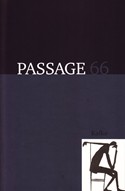Apparatets sammenbrud
DOI:
https://doi.org/10.7146/pas.v26i66.5803Resumé
Anker Gemzøe: “The Breakdown of the Apparatus. With Franz Kafka ‘In the Penal Colony’”
The article proposes a reading of ‘In the Penal Colony’ (1914), aiming to show how this story, in ways so far unnoticed by Kafka scholarship, represents something decisively new in his work. ‘In the Penal Colony’ introduces a new social motif, afterwards recurrent in Kafka: A cruel, old legal and social formation breaks down and leaves an empty gap and opening to a new situation that could be even worse. My initial reading is expanded by placing the story in biographical, literary and historical contexts. From a point of departure in Kafka’s diaries in 1914, a mapping is suggested of some important instances of specific intertextuality – Octave Mirbeau, Fyodor Dostoevsky and the Passion of the New Testament. Further, the story’s conception of society is – through Oswald Spengler – read into concrete historical contexts. Though in the kafkaesque form of an alienated parable, the story is also a shrewd analysis of the political dilemmas of the intellectual as Kafka saw them at the beginning of the First World War, foreseeing the disintegration of the Austro-Hungarian Empire. Because of Kafka’s specific position in the autumn of 1914, ‘In the Penal Colony’ reflects problems of a wider historical and general significance.
Downloads
Publiceret
Citation/Eksport
Nummer
Sektion
Licens
Forfattere, der publicerer deres værker via dette tidsskrift, accepterer følgende vilkår:
- Forfattere bevarer deres ophavsret og giver tidsskriftet ret til første publicering, samtidigt med at værket efter publiceringen er omfattet af en Creative Commons Attribution-licens, der giver andre ret til at dele værket med en anerkendelse af værkets forfatter og første publicering i nærværende tidsskrift.
- Forfattere kan indgå flere separate kontraktlige aftaler om ikke-eksklusiv distribution af tidsskriftets publicerede version af værket (f.eks. sende det til et institutionslager eller udgive det i en bog), med en anerkendelse af værkets første publicering i nærværende tidsskrift.
- Forfattere har ret til og opfordres til at publicere deres værker online (f.eks. i institutionslagre eller på deres websted) forud for og under manuskriptprocessen, da dette kan føre til produktive udvekslinger, samt tidligere og større citater fra publicerede værker (se The Effect of Open Access).





